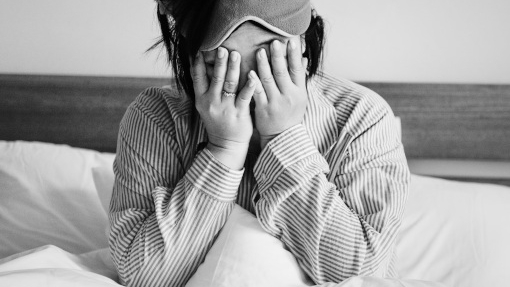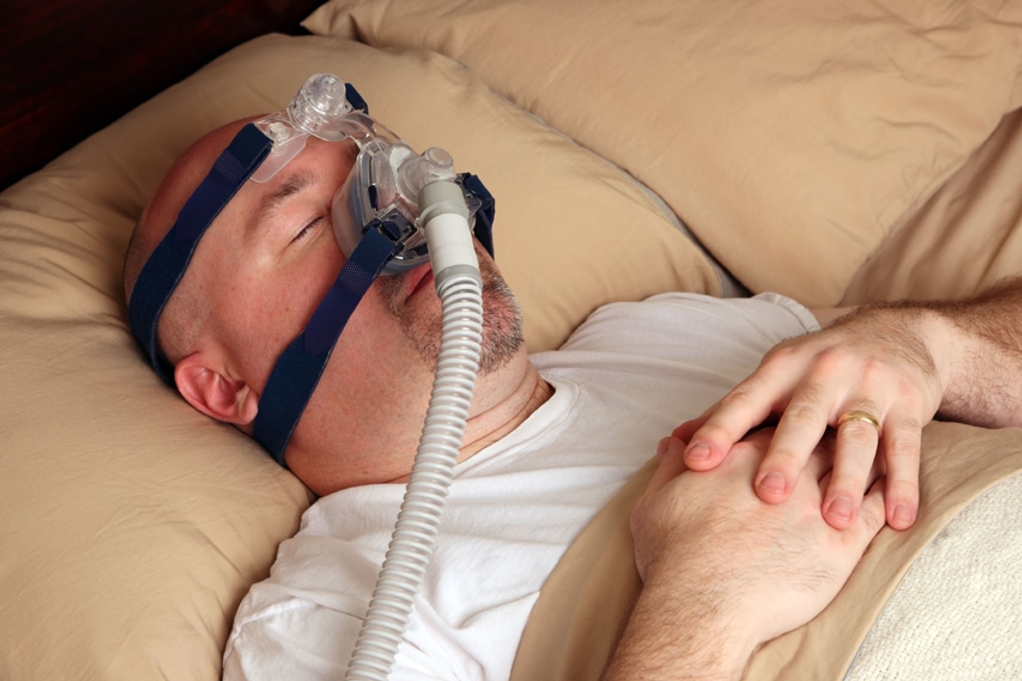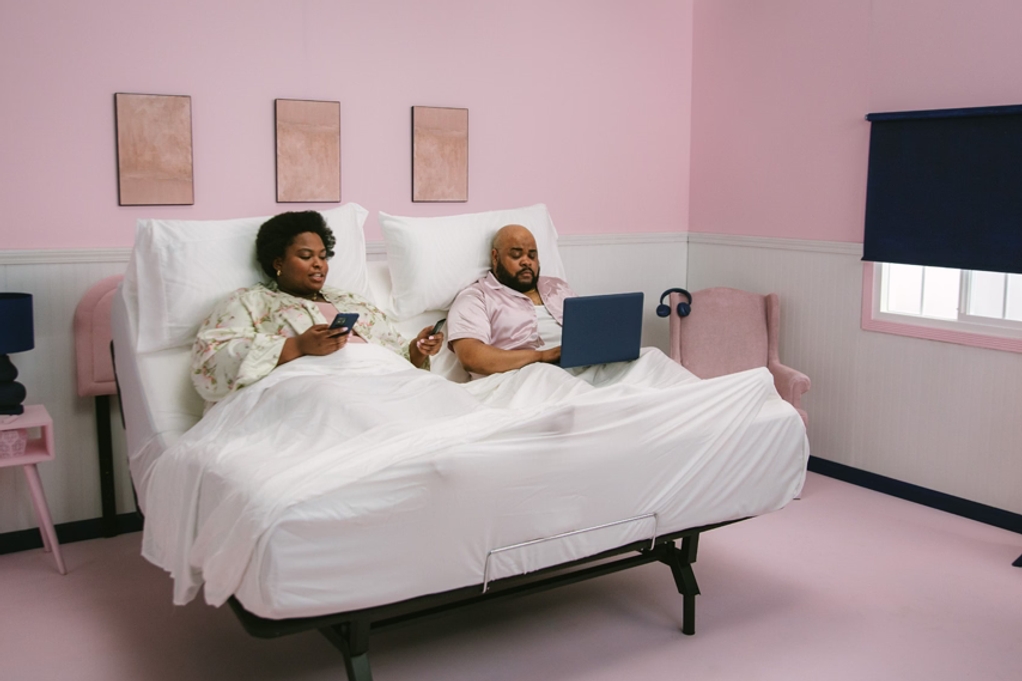Everyone has those nights where they just can’t seem to get a good rest, but what happens when that one bad night turns into days or weeks of poor sleep? When the inability to sleep well disrupts your life, you may be one of the 30-35% of adults in the U.S. who struggles with insomnia.
In our line of work, we hear from many sleepers who suffer the effects of insomnia in their everyday lives. That’s why we’re taking time to shed some light on this sleep struggle and help educate on why insomnia is so much more than just laying awake at night.
What is insomnia?
Insomnia is the most common sleep issue in America. It’s a sleep condition that makes it difficult to fall asleep, stay asleep and sleep for long periods of time, no matter how much time you allot to spend in bed.
In the movies, insomnia just looks like an inability to sleep (also called sleep-onset insomnia). But it can also look like someone sleeping for only short periods, waking up often at night, or waking up too early in the morning and not being able to get back to sleep (called sleep maintenance insomnia).
These symptoms don’t just affect your nighttime, they bleed over into your daytimes, too. Poor quality sleep can leave you tired, irritable and anxious when the sun is up, but it can also lead to more serious side effects like mental and physical health issues, low quality of work and even a higher risk of auto accidents.
Types of insomnia
To help better understand and treat each case of insomnia, the medical community has split different types into different categories.
Acute insomnia
Acute, or short-term insomnia is just what it sounds like: A bout of insomnia symptoms that happen over a short period of time, usually only for a few days or weeks. It’s the most common type of insomnia because it’s usually induced by a stressful temporary life event.
Transient insomnia
Transient insomnia is the shortest type of insomnia, lasting one week or less. Like acute insomnia, it is usually caused by a stressful event and usually resolves on its own when the event stops being a stressor.
Chronic insomnia
Chronic insomnia, on the other hand, is long-lasting, recurring or both. It is generally defined as occurring at least three times per week for three months or more. Acute insomnia and transient insomnia can become chronic if symptoms occur for short periods of time over the course of a few months. People with chronic insomnia may need to seek medical help or take active measures to treat their condition.
There are two types of chronic insomnia: primary and secondary. Primary insomnia is a disorder, not a cause or side effect of another condition. Its cause is unknown.
Secondary insomnia, on the other hand, occurs as a side effect of another health condition or medication. It can be short-term or chronic and its treatment depends on your other medications or health plans.
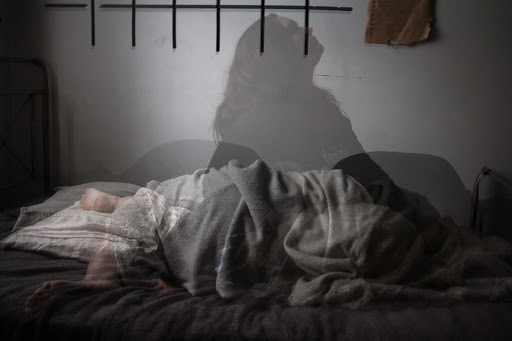
What causes insomnia?
This is another reason why insomnia is such a complex disorder: There are so many different factors that can cause it to happen. Diagnosing insomnia means looking at several different mental, physical and environmental factors. Here are some of the most common causes.
Stress
The body’s response to stress from work, school, relationships and more can trigger insomnia symptoms. It’s potentially one of the most common causes of short-term insomnia. The inability to sleep well can be another cause of stress, too, causing a pile-up effect that makes it harder to break the cycle.
Ingesting certain substances
This category of causation is broad, encompassing several different substances that can affect sleep. Stimulants like caffeine and nicotine can impact sleep, as can sedatives like alcohol. Even spicy foods or large meals can interrupt your digestion and keep you awake if consumed later in the day.
Medications
Medication is a huge contributor to secondary insomnia. Some drugs, especially those that treat blood pressure, asthma and depression as well as over-the-counter diet pills and cold medications can cause sleep problems as a side effect. Some people also experience sleep disruptions when adjusting to a new medication or weaning off medication.
Poor sleep environment
Your sleep environment includes everything you can sense around you as you sleep, from the amount of light peeking through your curtains to the sound of traffic outside and the feel of your mattress beneath you. A poor sleep environment filled with discomfort and distractions can lead to low quality of sleep and hours spent tossing and turning.
Physical health issues
This category is broad, ranging from physical pain that makes it harder to fall asleep, conditions that require frequent trips to the bathroom, sleep apnea that causes irregular breathing, restless leg syndrome, lung diseases that disrupt breathing and more.
Mental health issues
It is estimated that 40% of people with insomnia also have a mental health issue. For example, Anxiety and depression feed into insomnia, which causes a cycle that exacerbates stress and mental health problems. Bipolar disorder has also been known to cause insomnia symptoms.
Irregular sleep schedule
Ignoring circadian rhythm can cause the body to spiral out of good sleep habits. An interrupted circadian can be unintentional, like jet lag and night shift work, but it can also be accidental. Going to bed and waking up at different times each day can disrupt sleep over time.
Neurological disorders
Insomnia can also manifest in those with existing neurological problems ranging from Alzheimer’s and dementia to ADHD and autism spectrum disorder.
Unhealthy habits
Sometimes sleep issues can be linked to poor habits that build up over time, making them harder to break. These include:
- Excessive screen time
- Napping throughout the day
- Well-lit bedrooms
- Working too late
- Sleeping in too late
- Using your bed for daytime activities other than sleep
Treatment for insomnia
Insomnia is a complicated disorder that has a wide range of treatment options depending on your symptoms, causes and severity. Here are some of the more common methods for treatment.
Remember, only a medical doctor should give professional treatment plans and advice for coping with insomnia. It’s important to seek medical attention if you feel insomnia is disrupting your quality of life.
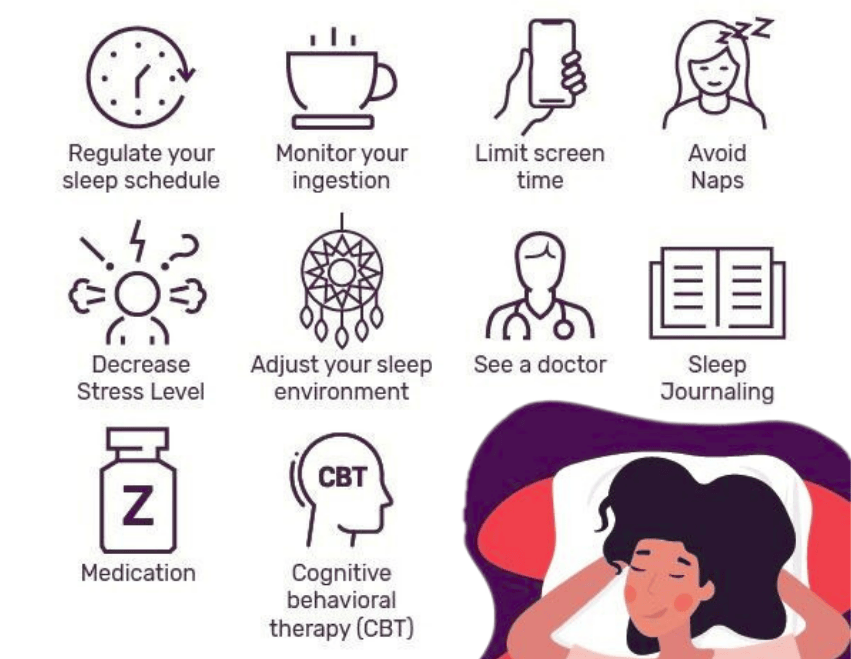
Regulate your sleep schedule
Waking up and going to bed at the same time every day (yes, even on weekends!) can regulate your circadian rhythm and get your sleep back on track. We know not everyone can avoid the night shift, but try to skip out on activities that disrupt your sleep cycle.
Monitor your ingestion
Avoid stimulants like caffeine and nicotine, and depressants, like alcohol, especially at night. You may also want to restrict coffee intake, even in the mornings. Eat meals on a regular schedule and limit how much fluid you drink in the evening.
Limit screen time
Turn off screens at least one hour prior to bedtime. This includes cell phones, TVs, laptops and tablets.
Avoid naps
Limiting your nap duration or stopping your naps altogether, especially later in the day, can help you sleep longer and better at night.
Decrease stress levels
Exploring new tactics to manage stress, like reading a book before bed, playing relaxing music or taking a hot bath can make it easier to fall asleep. Yoga, meditation, massage therapy and acupuncture can also help in this area.
Adjust your sleep environment
Make your bedroom a lovely place to sleep! Keep it cool and quiet with as little light as possible. Move electronics and screens out of the bedroom to avoid temptation, and make sure your sleep system is comfortable, supportive and works for your body. If you’re a bigger figured sleeper looking for some help in this department, a Big Fig Mattress may be able to help.
See a doctor
If insomnia is impacting your daily life, there’s no shame in seeking medical attention. Doctors can prescribe professional treatment plans and work with you to manage your symptoms for a better night’s sleep.
Sleep journaling
Chronicling your sleep each night can sometimes help doctors diagnose insomnia and keep up with treatment. Noting how you slept each night can be critical in determining what’s working what’s not.
Medication
For some people, chronic insomnia can require prescription medication for treatment. Using prescribed medication to relieve insomnia symptoms can be life changing for some people, and we encourage you to speak with your doctor about what’s right for you.
Cognitive behavioral therapy (CBT)
Because insomnia is so closely linked to stress and anxiety, cognitive behavioral therapy can help sleepers regulate their sleep cycles and reduce anxiety. CBT involves working with a professional on developing ways to reduce and eliminate the behaviors and thoughts and interrupt sleep.
Remember, if you do go through any of these treatment options and your sleep improves, that unfortunately doesn’t mean you’re cured of insomnia forever. For some, taking medication, using CBT tactics and actively working on good sleep habits can be a lifelong undertaking. We send our deepest sympathies and encouragement to our friends who struggle with chronic insomnia.
Upgrading your sleep environment
For some, upgrading your sleep environment may play a role in getting better sleep. This can include everything from your room temperature to your sheets and pillows, all the way down to your mattress and foundation.
Plus size and big and tall sleepers have different needs when it comes to long-lasting comfort and quality of sleep. The Big Fig Mattress is the first mattress built specifically to meet the needs of sleepers with a bigger figure. Its long-lasting, hybrid construction of high density foam and individually wrapped coils provide the ultimate mix of support and comfort and its edge support and hand tufting prevent materials from shifting when you move.
Instagram: @shayleemeurer
We hear from many bigger figured sleepers who suffer from insomnia and use the Big Fig to sleep better at night. These are a few of the reviews we’ve been proud to receive:
★★★★★“This bed is amazing! -- Best purchase I've ever made! I usually have issues sleeping and suffer from 2-4 hours of insomnia per night. I would wake up with my entire side hurting from laying on it. I also have back issues. I've either slept through the night every time or been awake only an hour, waking up with virtually no pain. I also can't feel my partner get out of bed and barely feel him move around. It's always a gamble getting a mattress so I was a bit anxious how it would turn out. I am 110% satisfied! Thanks to the manufacturers of the Big Fig! - Amber P.
★★★★★“I have had the most awesome sleep since I purchased this mattress & frame. I am an insomniac and this bed helps me sleep more soundly, feels amazing!”- Ana O.
★★★★★“My husband and I needed a new mattress during the COVID-19 quarantine. After researching online, I found the Big Fig reviews and decided to go for it. We are not disappointed! I have a bad back and suffer from insomnia. I've been able to get restful sleep, getting out of bed with my back cooperating. My husband, admittedly, can sleep anywhere, but even he commented on how comfortable the mattress is. I now recommend Big Fig to my friends and family.”- Courtney H.
Insomnia is a complex and layered sleep disorder that affects so many people in our country. We throw our unwavering support behind our friends who experience symptoms of insomnia, no matter how small. Everyone deserves a great night’s rest and high-quality sleep that lays the foundation for an amazing day.
For more resources on insomnia, we invite you to visit The Sleep Foundation , the American Academy of Sleep Medicine and the American Sleep Association .
The best sleep of your life starts with the mattress made specifically for you and your needs. Learn more about the Big Fig Mattress sleep system here.

